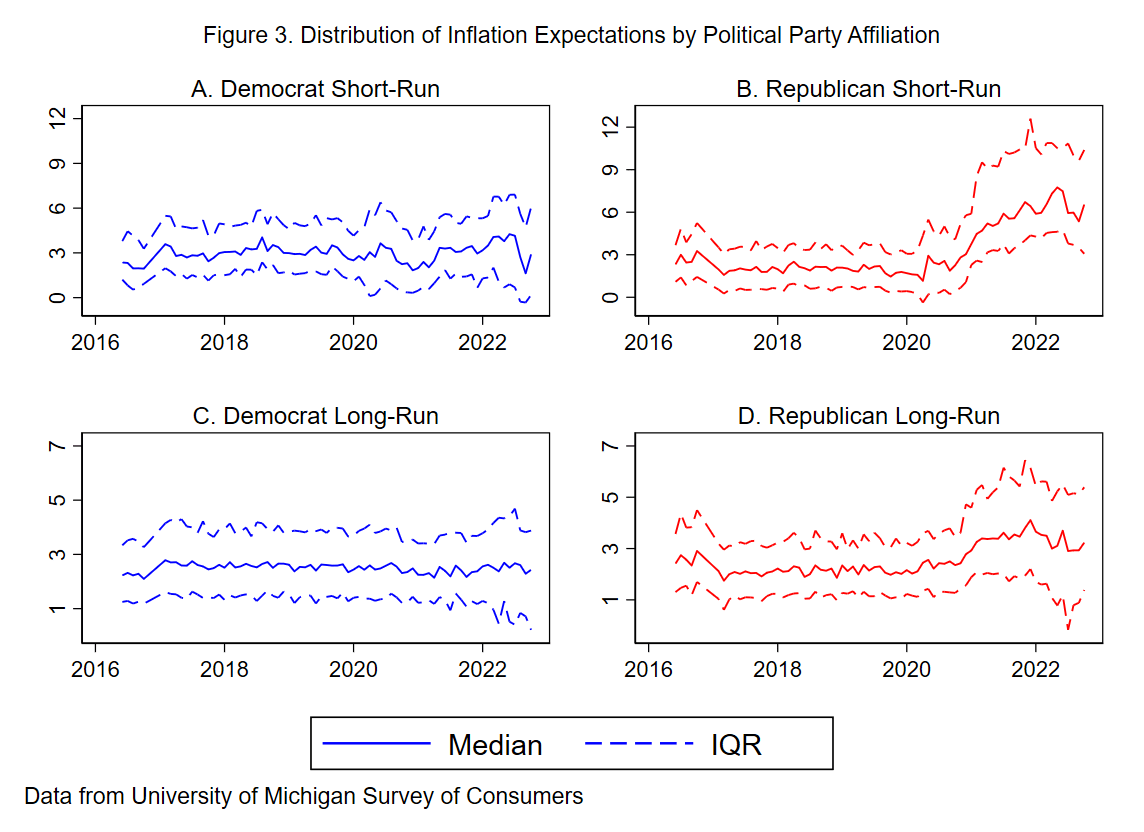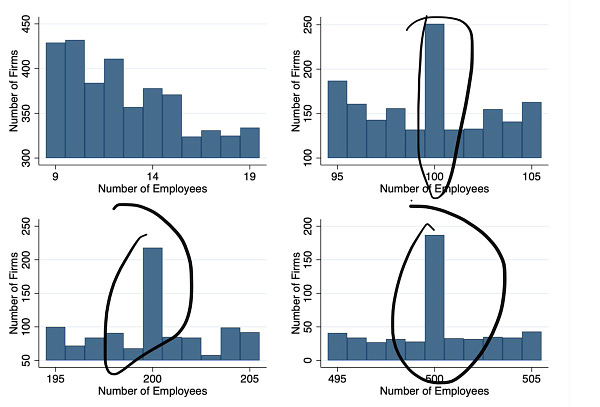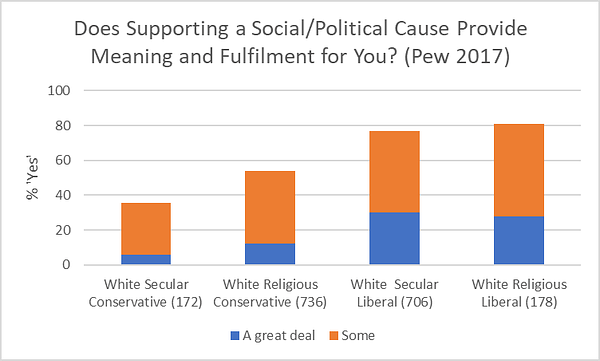Astral Codex Ten - Links For February 2023
[Remember, I haven’t independently verified each link. On average, commenters will end up spotting evidence that around two or three of the links in each links post are wrong or misleading. I correct these as I see them, and will highlight important corrections later, but I can’t guarantee I will have caught them all by the time you read this.] 1: Maybe you’ve heard of cultured meat, aka “vat meat”, where you grow meat in a lab so vegetarians can eat it without worrying about animal welfare. Some of the first products are due out in a year or two, though delays are likely and they’ll probably be more expensive than normal. But I hadn’t realized the full implications of separating meat production from animal farming: cultured meat companies are gearing up to sell lion meat, tiger meat, and “zebra sushi”. In theory this also paves the way for human meat, though regulators might have other ideas. 2: Eight years ago I wrote an article about how the government should stop restricting doctors’ ability to prescribe suboxone, a useful medicine for opioid abuse. Last month, the government finally stopped the restrictions. Good for them! 3: Carl Sagan married three times. His first wife was legendary biologist Lynn Margulis, who discovered mitochondrial endosymbiosis, then went off the deep end and became an AIDS denialist and 9/11 truther. His second wife was the woman who designed the Pioneer plaque. His third wife was one of the women who designed the Voyager golden record. 4: Claim:  Not enough people are talking about the fact that the nuclear powers, India and China, are developing medieval combat weapons for fighting in the Himalayas, because they agreed not to use guns
These are People’s Liberation Army soldiers with the newly developed Wolf’s Fangs mace Chinese sources seem to back this up (and related BBC), but I’m skeptical: is this really the best way to satisfy a “must fight with medieval weapons” constraint? Why not crossbows? 5: Did you know: Alex Berenson, who runs the most popular anti-vaccine Substack, has had an unusual career: he used to be an investigative reporter for the New York Times, and also wrote a series of bestselling spy novels. 6: Less Wrong: I Converted Book 1 Of The Less Wrong Sequences Into A Zoomer-Readable Format. Apparently there’s a thing where Zoomers are supposedly more likely to learn a text if you overlay it on on a fast-paced video game, example here. 7: By this point we’ve probably all heard stories about people who win the lottery and then end up bankrupt and miserable after X months or years. I had always assumed this was limited to very poor people with no understanding of money. This forum post argues it’s not, and tells the story of a man who started out with $15 million and still ruined his life after winning $170 million more in the lottery. 8: Did you know: Exiliarch Mar-Zutra II was a 5th century Jewish leader who took advantage of the chaos caused by weird Zoroastrian communists to secede and turn the city of Al-Mada’in, Iraq into an independent Jewish state for seven years. 9: Why doesn’t the Supreme Court have vice-justices? 10: Steve Sailer (warning: unz.com, far-right site, some firewalls will flag or block it): why aren’t there more gay English soccer players? Thousands of current or recent English pro soccer players, the media is really interested in finding a gay one so they can run a “Historic First” article, and apparently they can’t. There are rumors that players are afraid to come out because of homophobia, but there are at least 2,000 retired soccer players and only one of them has come out as gay. “I’m increasingly sympathetic to [the] theory that whatever psychosocial traits make men highly interested in team sports make them highly heterosexual too”. Is this true of other countries and other sports? 11: Adam Tooze on the demographic background to Iran’s protests. Iran thought it was facing an overpopulation crisis in the 80s and tried some reforms to lower family size. The reforms worked overwhelmingly well, causing “the most dramatic transition ever recorded in demographic history”, from 6.5 to 2.5 children per woman in thirty years. Iran now has “lower maternal mortality than the US”, and an education system where “women in university outnumber males”. This kind of demography isn’t usually compatible with patriarchal religious institutions, and the Ayatollahs are aware of this; in a rare admission of error, Khameini said that “Government officials were wrong on this matter, and I, too, had a part. . . . May God and history forgive us.” Now they’re trying to increase average family size and put the genie back in the bottle; Hungary can tell them about the limits of that strategy. 12: What it looks like to be on shrooms:  I haven’t used shrooms myself so cannot confirm or deny, but this is oddly compelling, and makes some things I’ve read about neuroscience of vision make more sense. I wonder if you could get HPPD from watching videos like this for too long. 13: Study: federal cancer funding is extraordinarily effective. Cancer research produces so many valuable treatments that it saves one DALY per $326 spent. For comparison, health systems usually consider an intervention good value-for-money if it saves at least one DALY per $50,000. By combing the Earth far and wide, effective altruists have tentatively found one or two opportunities in the poorest parts of Africa to save lives at $100/DALY, but these are extremely rare exceptions and I wouldn’t have expected anything in the US to be within an order of magnitude of that. Either this finding is fake, or we should all be donating to federal cancer research instead of whatever else we’re doing. 14: Yet another person building a vast theory of human interaction off of the characters in The Office. This one is pretty good, also name-drops Bobos In Paradise. I’m still surprised this is such a common thing. 15: Marginal Revolution: FDA Deregulation Increases Safety And Innovation And Reduces Prices. Study looks at what happens when the FDA reclassifies medical devices from a highly-regulated to a less-highly-regulated category; in general, those devices get better, cheaper, and there are somewhere between similar and fewer deaths/injuries related to those devices. Why would safety increase? The author suggests that regulation is a defense against lawsuits (“Your Honor, the FDA agreed to approve our device, so it can’t have been bad!”), and removing that defense makes companies more lawsuit-conscious and careful; Alex Tabarrok suggests a bigger effect may be allowing more innovation towards safer versions. 16: Ozy writes about Interesting People Of History: Charles Williams (ie the other member of the Inklings) 17: Did you know: the Congressman who founded the House Committee On Un-American Activities was, in fact, a paid Soviet spy (tweet, Wiki article). This actually makes sense; he originally started HUAC to root out fascists, and McCarthy only turned it against communists later on. “There has been a push to rename the street [currently named after him], but as of 2018 it has been unsuccessful.” 18: Idle Words: Why Not Mars? Surprisingly strong argument for why sending humans to Mars is harder than people think, of minimal scientific value, and likely to contaminate all future searches for microbial life and ruin our chance to study the topic. Concludes that we should abandon the allure of human space travel and just send probes everywhere. This makes short-term sense, but I wonder what this author’s vision of the future is - do we just stay on Earth forever? If not, don’t we have to start trying to do the hard thing at some point? (I don’t care about this because I assume AI will will flip the gameboard one way or another, but Ceglowski is a noted singularity skeptic and should probably have opinions about long-term things). 19: Metacelsus and Razib on epigenetics. Stop using it to claim there’s “intergenerational trauma”! 20: Tafl games are a family of European games, played in areas as diverse as Iceland, Ireland, Britain, and Denmark, probably sharing descent from a now-lost board game of ancient Rome. One of them, Hnetafl, was the chief board game of the Vikings and is affectionately called “Viking chess”. The one we actually know the rules for is the Saami version, Tablut, which survived long enough for Linnaeus (the taxonomy guy!) to write down the rules. 21: Shot:  everybody was tickled to hell til they realized half the classics matched the gpt fingerprint. (opens beer) euclid, half-dozen bible books, upanishads. (drinks) yeah after that it got fuckin weird Chaser:
22: Related: the very center of GPT’s embedding space contains a few unusual tokens including the string “SolidGoldMagikarp”. GPT displays anomalous behavior if these tokens are inserted in a query; for example, it treats “SolidGoldMagikarp” as the word “distribute”. ChatGPT is pretty advanced and fails semi-gracefully here; GPT-2’s reaction to these tokens is more disturbing:
Further investigation determined that many of these tokens are the screen names of a group of Redditors who attempted to count to infinity. The most likely explanation, according to the discoverers, is that these names were in GPT’s tokenization data, but not its training data (maybe they were especially common in the tokenization data because they made thousands of posts with numbers in them, but didn’t make it into the training data because their posts had no content?) - that leaves them existing without content, and GPT tries to round them off to some other “nearby” token (by incomprehensible AI standards of nearbyness). Congrats to the SERI-MATS AI alignment researchers who found all of this; maybe this makes it 0.0001% less likely that the AI which controls the nuclear arsenal in twenty years will have equally inexplicable behavior. 23: More language model news:
24: Vosmyorka explains the ongoing political crisis in Israel. 25: People sometimes talk about the value of bets as a mechanism for settling disputes. I think this works well either when the dispute is about a future prediction that will be obvious when it happens, or when both people are really careful and honest and trust each other a lot. More creative uses - like bets on how debates on hot-topic issues will go - work less well. Nuno Sempere’s forecasting newsletter on the attempted Kirsch-Wilf bet:
A more sympathetic person might summarize the lesson as: it’s very hard to come up with acceptable resolution criteria and a set of judges who both sides agree are fair. 26: Association of polygenic risk for psychiatric disease with math and language scores (paper, Twitter discussion) It claims schizophrenia risk decreases math but increases language ability, which would bolster some interesting evolutionary theories. But it also claims autism genes increase linguistic ability but have no effect on math - doesn’t that contradict common sense? What am I missing? 27: Brookings: Political Party Affiliation And Inflation Expectations: 28: Ryan Bourne reporting from the American Economic Association meeting:
Compare to my own experience at the American Psychiatric Association meeting:
For now I think every “American ____ Association” should be considered compromised. I wonder if medieval people had to deal with this kind of thing. “I journeyed to the Clockmakers’ Guild meetinge, yet all of the guildmasters discoursed only upon the supremacy of the Pope, and none upon on clockmaking”. Or are we the first generation to mess up this badly? 29: WoodFromEden responds to Alice Evans’ post on the origins of patriarchy. If you’re allergic to the word “patriarchy”, reframe it as the anthropological question of why men were more powerful than women in societies between the Bronze and Industrial Age technology levels. 30: Biggest ever meta-analysis on cognitive behavioral therapy (53,000 patients) finds it works very well in a wide variety of circumstances, may slightly outperform other psychotherapies, equals medication in the short-term but might outperform it in the long-term, and is not getting less effective with time. Remember that meta-analyses are inherently suspicious and that the most important factor in how psychotherapy studies turn out is whether the authors support the psychotherapy or not. 31: I think I’ve mentioned Daniel Filan here in the contest of his AI alignment work and his AI X-Risk Research Podcast. He has a new podcast about not-just-AI-related things, The Filan Cabinet. First three episodes are interviews with a former Congressional candidate, a Presbyterian pastor, and a cryptocurrency developer. 32: In honor of the Even More Bay Area House Party post where a character translated “Mahayana” as “monster truck”, Nat Sharpe (or more likely an AI prompted by Nat) made these images: 33: If you’ve served any time in the trenches of the IQ nature-vs-nurture wars, you’ll be familiar with one of the nurture side’s strongest arguments: average Irish IQ appeared to rise from mid-80s to 100 as Ireland modernized in second half of the 20th century. Psychologist Russell Warne looks into the evidence and finds that no, Irish IQ has probably been pretty stable during that time, though some of this depends on the definition of “IQ” and “stability” - some early Irish failed the tests because they had never taken any similar test before and were confused, but quickly improved to near-100 after being acquainted with the process. 34: Etirabys: In 1910, Argentina was the 7th richest country in the world. Starting around 1930, it flatlined harder than anyone had ever flatlined before, until now it is only about average for South America, itself a relatively mediocre region. Why? Etirabys brings up fifty years of incessant coups and countercoups centered upon Juan Peron and his opponents. @moritheil clarifies two additional points: first, "though the Peronists are often described as proto-fascist, First Lady Eva would in modern terms be called a social justice warrior . . . Argentina discovered identity politics decades before the US did". This is probably not the sentence you want to read about your country’s governing party if you’re hoping for economic growth. Second, during the period involved, Argentina accepted an extraordinary number of immigrants, especially from Italy (60% of Argentines are now of at least partial Italian descent), reaching percent-immigrant levels more than double the US at its peak. Those immigrants were an awkward combination of Jews and other refugees fleeing Europe just before World War II, and defeated Nazis fleeing Europe just after World War II. These conflicts created the fertile soil for the identity politics half of Peronism. Garrett Jones says that his new book on immigration has a chapter on this. Related quote: “There are four types of economies: developed, developing, Japan, and Argentina”. 35: Matt Taibbi writes about Hamilton 68, supposedly a sophisticated group tracking Russian bot activity. The New York Times, MSNBC, and Politifact all wrote stories about Russian disinformation campaigns based on their research. Apparently new information reveals Hamilton 68 just sort of randomly declared normal human US conservative commentators “Russian bots” (along with a smattering of obvious Russian accounts like the Russia Today newspaper), tracked their activity to make a “Russian bot activity dashboard”, and hid this by refusing to release their list or explain their methodology. Seems bad. 36: Robin Hanson: Why Is Everyone So Boring? I basically agree with his conclusion: it’s too easy and profitable to attack people socially, for most people do anything except crouch in a maximally defensive posture. 37: Related: YouTube influencer MrBeast paid for a thousand blind people to get surgery that helped them see, then recorded their reaction on his YouTube stream:  If you Google “MrBeast blind" on YouTube like I did to find that clip, the top three videos are all about the backlash to his efforts. People were enraged. Some of them thought it was exploitative, others that it might help justify capitalism, still others that by curing blindness, he was implying that blindness was bad, which was insulting to blind people:
I bring this up because we’ve talked here before about billionaire philanthropy. People have superficial objections to it - what if the billionaires are trying to defuse anger at their business empires? What if they donate to overly political or weird speculative causes normal people don’t like? What if they exploit their employees harder to get the donation money? But whenever you whack-a-mole one of these objections, another one seems to pop up. Here’s someone who isn’t an exploitative business tycoon, donating to as normal and popular a cause as could be imagined, and people are still finding insane reasons to hate it. I maintain that whether or not there are good reasons to be opposed to charity, there also seems to be some deeper wellspring where people just hate the idea that other people are allowed to make the world better. If someone else helps other people, they’re acting like a tall poppy and need to be hurt and brought back down to everyone else’s level in order to protect my own self-worth (yes, I have read Sadly Porn). This shouldn’t make us numb to any arguments that any kind of charitable giving might be wrong, but it’s a bias we need to watch out for, maybe. But also I can’t deny that as a phenomenon Mr. Beast really is disquieting:  it's offputting to see mr beast permanently improve the lives of real people for autistically optimized algorithm content, when mr beast doesn't even seem to see them as real humans. but it's still real improvement to the world, he's angel not demon https://t.co/WdVKqd1Aiv  Lolo @LolOverruled  @coldhealing He's like an angel through the lens of Lovecraft. Alien, inhuman, incomprehensible yet still making things better. I understand being unsettled even if I'm glad he does what he does. ”Alien, incomprehensible, yet still making things better” would be a good slogan for many people and groups I know. I’m grateful that they exist, and grateful for Mr. Beast. 38: Natalia Mendonca continues her series pushing back against Slime Mold Time Mold’s case for the chemical contaminant theory of obesity. Even though I was already doubtful of SMTM’s case, I found this really helpful because of the argument that obesity hadn’t suddenly increased at a specific point (usually claimed to be the 1960s) but had been increasing gradually since at least 1900 - I think this matches what you would expect from increasing affluence and food-making technology, and not what you would expect from some specific dietary nutrient/toxin being the villain. Also, Natalia finds very no real evidence for the oft-quoted idea that wild animals are gaining weight, which again rules out some of the more exotic theories and removes a challenge to the boring old caloric intake explanation. 39: Related: review/meta-analysis finds that drinking diet soda = drinking water as far as weight gain goes, although none of the studies lasted more than a year so I guess you could still argue it causes some problem long term. I already figured this out through few-weeks-on, few-weeks-off self-experimentation, but it’s good to see it confirmed. 40: This is pretty funny, although if I’m understanding the graphs right the magnitude of the effect is small:  Why would companies bunch at 100, 200, and 500 employees? The answer lies in discrimination law. The Civil Rights Act of 1991 limits damages, provided they are under given number of employees. This has strongly negative results on the economy!
papers.ssrn.com/sol3/papers.cf… 41: AISafety.training is “a database of training programs, conferences, and other events for AI existential safety” - you can also book a call with them to get career advice for the field. 42: In a surprise major victory for YIMBYs, California has removed zoning powers from most of its cities, using an old law saying that unless cities’ zoning plans met certain criteria they could lose zoning powers as a punishment. The law was never really enforced and most cities had been ignoring it for decades, but Newsom dug it out of the books and is enforcing it as of now. Cities are rushing to make new zoning plans that satisfy the old law’s criteria, but even these will require much more development than they are currently allowing. Here’s a Manifold Market on the results: This seems really low - this article says California needs an extra 2.5 million homes over the next decade just to avoid things getting worse. I think this is because most cities plan to “voluntarily” bring themselves into compliance by building more homes. It looks like San Francisco has come into compliance by “voluntarily” agreeing to build 82,000 homes; San Franciso is about 2.5% of California’s population, but this probably applies more to denser cities, so maybe this suggests a total number of homes in the 1 million range? 43: Related: claims that Newsom threatened to withhold state money from San Francisco unless they cleaned up their streets, they immediately and successfully cleaned up their streets, and now people can feel safe and happy walking outside again. I don’t go to SF enough to know if this is true, but people on Twitter say there’s been a dramatic change. 44: Related: El Salvador's murder rate has fallen from 103 (highest in the world) to 7.8 (lower than US), giving its (Bitcoin-obsessed) president an approval rating of 87%, highest in the western hemisphere. How did he do it? Originally people suspected a truce with gangs, but that truce broke down and now he’s just trying mass incarceration at unprecedented scale, up to 2% of the population. See article for case somewhat against, first comment for case somewhat for. I would like to see a better analysis of how he was able to muster the state capacity to do this, and whether other gang-ridden countries aren’t doing it because of civil rights concerns, because they’re in the pocket of the gangs, or just because it’s too hard. 45: New Cochrane meta-analysis finds no evidence that masks work for preventing transmission of respiratory illnesses, including COVID, but that hand-washing does. Context is that long before COVID, there was debate about whether respiratory illnesses were more droplet spread (in which case hand-washing > masks) or airborne spread (in which case masks > hand-washing), and some people who have been on Team Droplet for decades wrote this meta-analysis, which did indeed find handwashing > masks. This shouldn’t be surprising - most of the studies included were the same pre-COVID studies that the establishment used to argue that hand-washing worked and masks didn’t back in March 2020. Most of these were studies showing that if one person in a household had flu, them wearing a mask at home didn’t seem to prevent their family from getting flu - although there were some issues here like “they were supposed to wear masks even while sleeping because they slept in the same bed as their spouse, but obviously they didn’t do that and then their spouse got the flu” which don’t translate to the COVID situation. The analysis does include two new COVID studies - one from Bangladesh that shows a positive effect from masks and one from Denmark that doesn’t (but people complain the lockdown there was so strict that there was too low a sample size of people getting COVID). But mostly it’s just the same set of studies. So this shouldn’t be a strong update on whatever you thought about the mask debate in March 2020. In March 2020, I reviewed many of these same studies and concluded that while they pretty clearly showed that masking within households didn’t prevent flu from spreading, this seemed different enough from the spread of COVID in public places that it was hard to say, and given the low risk of masks, they were probably worth trying for most people. I still think this is true, although notice that this is a lower bar than “government mandate”. More commentary here, here, here, here, here, I’m focusing on the negative commentary since obviously the positive commentary is “haha, we were right, suck it”. This article discusses the broader transition from Team Droplet to Team Airborne among epidemiologists, and I would interpret continuing establishment support for masks as coming from this change at the theoretical level, rather than new RCTs (which mostly haven’t happened). I’m cynical enough to believe that most RCTs conducted during the pro-droplet-consensus period got pro-droplet results, but that once they get around to conducting new RCTs during the new pro-airborne-consensus period, they’ll get pro-airborne results. But people mostly haven’t gotten around to conducting new RCTs during the new pro-airborne-consensus period, so most RCTs are still pro-droplet, so all the meta-analyses come out pro-droplet for now. Trust Science! 46: Claim: if lessons are presented along with a light pulse that maintains the brain at alpha rhythm (apparently related to focus), students learn three times faster (objection: isn’t beta rhythm was the one related to focus?) This maybe implies that one reason it’s hard to focus is because you can’t maintain your brain waves in a coherent rhythm, and flashing pulses of light can serve as an external “metronome” to help with this. This is slightly harder than just getting a light that flashes X times per second, because it needs to be matched to the trough of a person’s individual brain rhythm, which requires some fancy EEG monitoring. But it should be possible to test with about $500 worth of parts and some basic EEG knowledge. If anyone tries to replicate this on themselves, please let me know. 47: Interesting pushback against the claim that the decline of religion led to the rise of wokeness:  Religious decline does not explain much about the rise of political division and wokeness. The two are not substitutes. Religious liberals are far more invested in political causes than secular conservatives. Data via @pewresearch 48: Nathaniel Hendrix uses the ACX prediction contest data to test some theories about whether superforecasters are just using cheap tricks. His conclusion is more nuanced but I would summarize it as: no, they are not just using cheap tricks. 49: I endorse this piece on the secret of blogging success (it’s writing a lot, regularly), but the main reason I’m linking it is nominative determinism: the writer is named Max Read. You're currently a free subscriber to Astral Codex Ten. For the full experience, upgrade your subscription. |
Older messages
Crowds Are Wise (And One's A Crowd)
Monday, February 6, 2023
The long road to Moscow
Open Thread 262
Monday, February 6, 2023
...
Berkeley Meetup On Tuesday, Special Guest Daniel Ingram
Saturday, February 4, 2023
...
Mostly Skeptical Thoughts On The Chatbot Propaganda Apocalypse
Thursday, February 2, 2023
...
Book Review Contest Rules 2023
Thursday, February 2, 2023
...
You Might Also Like
Musk Has Triggered A Corporate Deregulation Bomb
Monday, March 10, 2025
A Delaware bill would award Elon Musk $56 billion, shield corporate executives from liability, and strip away voting power from shareholders. Forward this email to others so they can sign up “
☕ Can’t stop, won’t stop
Monday, March 10, 2025
Why DeepSeek hasn't slowed Nvidia's roll. March 10, 2025 View Online | Sign Up Tech Brew Presented By Notion It's Monday. So much is happening all the time, so you'd be forgiven for
Trump's war on the First Amendment
Monday, March 10, 2025
Plus: Giant white houses everywhere, a woman in chains, and love. View this email in your browser March 10, 2025 Trump, in a navy suit and red tie, is seen from the shoulders up. His mouth is open in
Veterans Administration therapists forced to provide mental health counseling in open cubicles
Monday, March 10, 2025
As part of the Trump administration's frenzied push to end remote work arrangements for federal government workers, the Veterans Administration (VA) is forcing therapists to provide mental health
Armed Man Shot Near White House, Russian Spy Ring, and Jet Lightning
Monday, March 10, 2025
Secret Service agents shot and wounded an “armed man” a block from the White House shortly after midnight Sunday while President Trump was away for the weekend. ͏ ͏ ͏ ͏ ͏ ͏ ͏ ͏ ͏ ͏
Numlock News: March 10, 2025 • Crater, Mickey 17, Hurricane
Monday, March 10, 2025
By Walt Hickey ͏ ͏ ͏ ͏ ͏ ͏ ͏ ͏ ͏ ͏ ͏ ͏ ͏ ͏ ͏ ͏ ͏ ͏ ͏ ͏ ͏ ͏ ͏ ͏ ͏ ͏ ͏ ͏ ͏ ͏ ͏ ͏ ͏ ͏ ͏ ͏ ͏ ͏ ͏ ͏ ͏ ͏ ͏ ͏ ͏ ͏ ͏ ͏ ͏ ͏ ͏ ͏ ͏ ͏ ͏ ͏ ͏ ͏ ͏ ͏ ͏ ͏ ͏ ͏ ͏ ͏ ͏ ͏ ͏ ͏ ͏ ͏ ͏ ͏ ͏ ͏ ͏ ͏ ͏ ͏ ͏ ͏ ͏ ͏ ͏ ͏ ͏ ͏ ͏ ͏ ͏ ͏ ͏
Open Thread 372
Monday, March 10, 2025
... ͏ ͏ ͏ ͏ ͏ ͏ ͏ ͏ ͏ ͏ ͏ ͏ ͏ ͏ ͏ ͏ ͏ ͏ ͏ ͏ ͏ ͏ ͏ ͏ ͏ ͏ ͏ ͏ ͏ ͏ ͏ ͏ ͏ ͏ ͏ ͏ ͏ ͏ ͏ ͏ ͏ ͏ ͏ ͏ ͏ ͏ ͏ ͏ ͏ ͏ ͏ ͏ ͏ ͏ ͏ ͏ ͏ ͏ ͏ ͏ ͏ ͏ ͏ ͏ ͏ ͏ ͏ ͏ ͏ ͏ ͏ ͏ ͏ ͏ ͏ ͏ ͏ ͏ ͏ ͏ ͏ ͏ ͏ ͏ ͏ ͏ ͏ ͏ ͏ ͏ ͏ ͏ ͏ ͏ ͏ ͏ ͏ ͏ ͏
☕ Spending spree
Monday, March 10, 2025
European markets are outpacing the US... March 10, 2025 View Online | Sign Up | Shop Morning Brew Presented By Tubi Good morning, and Happy Mario Day (MAR10). Traditional celebrations include: reckless
Surprise! People don't want AI deciding who gets a kidney transplant and who dies or endures years of misery [Mon Mar 10 2025]
Monday, March 10, 2025
Hi The Register Subscriber | Log in The Register Daily Headlines 10 March 2025 AI Surprise! People don't want AI deciding who gets a kidney transplant and who dies or endures years of misery
How to Keep Providing Gender-Affirming Care Despite Anti-Trans Attacks
Sunday, March 9, 2025
Using lessons learned defending abortion, some providers are digging in to serve their trans patients despite legal attacks. Most Read Columbia Bent Over Backward to Appease Right-Wing, Pro-Israel















